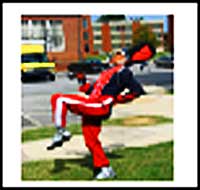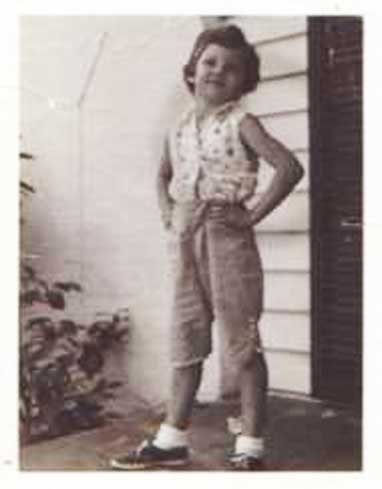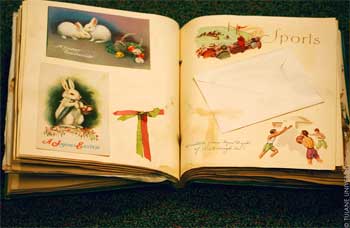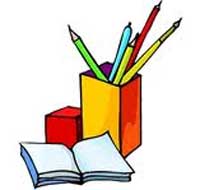Young poet, Old poet?
Once upon a time in the 1950s, I became a poet. My early reading friends were Little Boy Blue, Old Mother Hubbard, Jack and Jill, and Miss Muffet. Hearing and reading traditional nursery rhymes introduce young children to rhythm, rhyme, sensory details, new words, and poetic patterns. This background shaped my personal writing of poems for pleasure and for gifts to others. I even solved a problem by creating poems!
My family would pile into our small car for regular Saturday morning drives to visit my grandparents on their Texas ranch. We three children survived the three-hour drive as the sun came up and we ignored the dog behind us panting on our necks. Once at the ranch we loved hiking, fort-building using big rocks and cedar branches, feeding sheep, sitting with our father on the gentle horse, playing board games with family, eating wonderful home cooking, and competing at shuffleboard on the screened porch. However, when it was time to return home on Sunday afternoon, I noticed that my grandfather smiled and waved, but my grandmother would wave as tears filled her eyes.
So, the poet in me bloomed. I began to write a poem the Saturday night before we all would leave the ranch. As we loaded the car the next day, I made up my bed and left a poem on my pillow. With each subsequent trip’s end, my grandmother would cheerfully wave and head for my bedroom to see what poem I had left behind. This practice continued through time and into my college days. I received an unexpected gift years afterward when my mother gave me a worn brown envelope of my poems which my grandmother had saved. Next is a poem from the envelope.
Thank You
Just the same now, as then,
we are touched by the Wimberley wind.
Kittens and the hills of green and blue
keep bringing us back to visit you.
Just the same now, as then,
as we travel on our roads without end,
with each country dawn we know
our love for you two will always grow.
by Martha
1957
|
It became my practice to leave a poem after every visit to my parents’ home. Now, after visits to the home of my daughter, her husband, and the grandsons, I tape a poem to their refrigerator. During the years they lived in Texas, I left this poem.
Time and Space
time and space
bring us all together
to spend
magical, loving moments
whether near
or far apart
our happy memories
keep us close
like scrapbook pictures
help hearts and minds recall
time and space
by Martha
|
These poems I wrote a in a circular free verse pattern, meaning no rhyme and the first and last lines are the same; yet the meanings are different. My family members have become poets.
My uncle, who was a minister, wrote the most marvelous poetic holiday newsletters. One of my daughters and her children also expressed themselves through the following poems.
(Haiku)
Hot Wheels
by Fisher
Hot Wheels are awesome
The cars spin and jump a lot
They zoom very fast
(Limerick)
A Flamingo Named Sue
by Jones
A weepy flamingo named Sue
Was in her nice room at the zoo
All the animals laughed
Even Jeremy giraffe
Just because poor old Sue was born blue
(Narrative Free Verse)
My Shepherd
by Whitney
Thrown into darkness
Gasping for air
Feeling alone
As if no one was there
He whispers so gently
His promises true
His mighty arms shelter
And strengthen me too
Faced with impossible
Things I must bear
Fear turns to comfort as
He leads me there
His light destroys darkness
That haunted me so
And forward we press
As together we go
|
Let’s continue our Poetry Parade by identifying and understanding reasons why poetry is important; how poetry builds bridges to our learning; and how to write many, different forms of poetry.
Poetry power at home and in the classroom enables students to:
-
internalize new learning by connecting it to prior learning;
-
understand and apply creativity and higher order thinking skills;
-
enjoy and explore language rhythm, sounds, and patterns to develop literacy;
-
nurture curiosity about the world and create poems about topics and themes;
-
experience the works of published poets who model imagination, figurative language, specific details, well chosen vocabulary, grammar and punctuation, story, character, voice, different poetic forms, and meaningful messages;
Forms of Poetry
What in the world is an acrostic poem?
Acrostic poems feature a subject word written up and down. Then you write a word or phrase going across. For example, if the first letter in your subject word Winter is W, then your poem’s beginning line across might be When I see snow. Do this for the rest of the subject’s up and down letters. Think about lots of sensory images and details to use. Also, you may write the subject word letters up and down in the middle of the poem and put words in front of and after each letter. You might even try writing the subject word letters up and down and writing words or phrases to show ending with the subject word letters.
Beginning
Space
Six months is the
Planned time for
Astronauts to travel in space
Controlling their spacecraft to
End up landing on Mars
|
|
Middle
Space Travel
| Unmanned |
S |
pacecrafts can reach |
| Observed |
P |
lanets far away in |
| Our sol |
A |
r system |
| To dis |
C |
over scientific facts |
| About |
E |
arth and its neighbors! |
|
|
Ending
Into Space
Powerful rocketS
Lift the space vehicle uP
Away from Earth with A
White smoke trail in an arC
Of the launch to explorE |
|
|
How would you write an ABC, or alphabet, poem?
An ABC, or alphabet, poem is usually short. A longer ABC form is like the abecedarius, which might have 22 lines and was written in ancient times. Today’s ABC poem has a set of lines of words or phrases which give the reader a mind picture or create emotion. The first word in the first line begins with A, the first word of the second line begins with B, and the pattern continues. You might also begin your ABC poem later in the alphabet . Then three lines following the first line must begin with alphabetical order letters. The next line may start with any letter you choose.
Any time I’m hungry and
Begging for a
Cookie or potato chips I
Decide to
Eat fruit or a vegetable
For staying on my diet
Good healthy eating!
|
Playing a tuba
Quite loudly is
Really not so hard
Since you just blow in
Much more air
|
Did you know that you could create a Bio poem?
A bio poem lets a writer follow a pattern and add details to tell about self or another person. Prewriting for this poem might be a list of specific traits, feelings, interests, likes, and dislikes of the subject of the poem.
Title
Name
Words that describe
Who enjoys
Who is able to
Who feels
Who needs
Who fears
Who cares about
Who would like to
|
|
David
David
Gifted, thoughtful, funny, musical
Who enjoys reading, telling puns, watching sports
Who is able to manage safety trainings, e-mails, making soups
Who feels happy, optimistic, kind, patient
Who needs hugs, file cabinets, recycle box
Who fears another red wasp sting
Who cares about love, friendships, playing traditional jazz
Who would like to go camping
|
Resources to Learn More about Poetry
Dirty Laundry Pile: Poems in Different Voices
Selected by Paul B. Janeczko, Harper Collins Children’s Books/Harper Trophy
(All ages)
Animal Poems
Valerie Worth, Farrar Straus Giroux
(Grades K–3)
Weather: Poems for All Seasons
Melanie Hall & Lee Bennett Hopkins, Sagebrush
(K–2)
Winter Poems
Barbara Rogasky & Trina Schart Hyman, Scholastic
(PK–3)
Come With Me: Poems for a Journey
Naomi Shihab Nye & Dan Yaccarino, Greenwillow Books
(K–2)
Zoológico de poemas/Poetry Zoo
Margarita Montalvo, Scholastic
(2–5)
Alphathoughts: Alphabet Poems
Maria Baggetta & Lee Bennett Hopkins, Highlights/Wordsong
(K–2)
Fathers, Mothers, Sisters, Brothers: A Collection of Family Poems
Marylin Hafner & Mary Ann Hoberman, Little Brown Children
(PK–3)
African Acrostics: A Word in Edgeways
Avis Harley, Turtleback Books
(2–5)


 Poetry Parade
Poetry Parade

